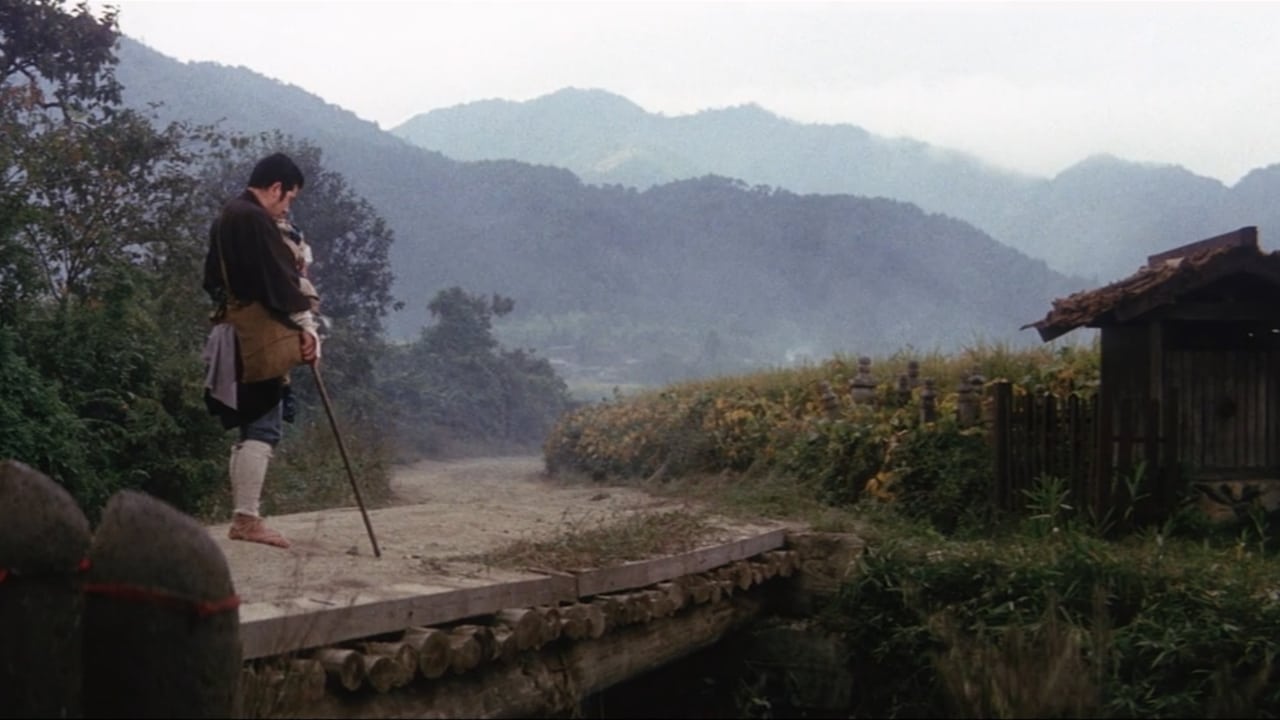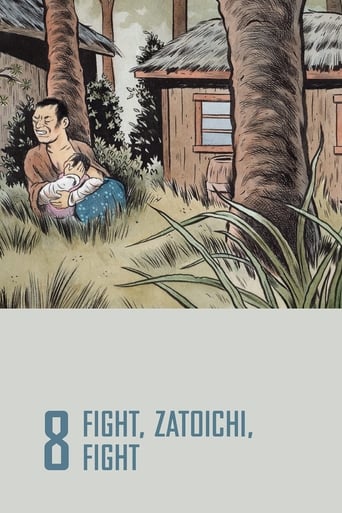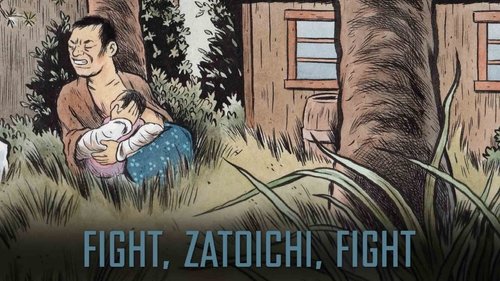AnhartLinkin
This story has more twists and turns than a second-rate soap opera.
PiraBit
if their story seems completely bonkers, almost like a feverish work of fiction, you ain't heard nothing yet.
Plustown
A lot of perfectly good film show their cards early, establish a unique premise and let the audience explore a topic at a leisurely pace, without much in terms of surprise. this film is not one of those films.
Hadrina
The movie's neither hopeful in contrived ways, nor hopeless in different contrived ways. Somehow it manages to be wonderful
kluseba
Fight, Zatoichi, Fight is the eighth entry in the franchise and one of the most unusual movies in the series. In the beginning of the movie, a young woman who is on her way to her husband with her infant son gets mistakenly killed by a group of samurai who are actually chasing Zatoichi. The blind masseur decides to take the baby of the deceased mother to its father who is living in an isolated village about sixty-five miles away. On his way, Zatoichi teams up with a kleptomaniac prostitute who helps him nurse the child. However, the samurai are still chasing Zatoichi and have identified the presence of the baby as a potential weakness of the blind masseur. As if that weren't enough, Zatoichi must deal with an unpleasant surprise when he finally meets the baby's father.The movie with the misleading title stands out for three reasons. First of all, Zatoichi becomes surprisingly caring, emotional and tender as he grows fond of the baby boy he protects. Secondly, the movie includes a lot of slapstick humor with Zatoichi stealing clothes on a scarecrow to use them as diapers, with the infant child accidentally peeing on two angry sumo ringers and with a group of elderly blind people who fool the group of samurai that are chasing Zatoichi in hilarious manners. Thirdly, the addition of a kleptomaniac prostitute is quite interesting as she turns out being a very clumsy, emotional and romantic drama queen who often argues with Zatoichi. These three elements add a fresh touch to the Zatoichi franchise and offer several truly memorable scenes such as Zatoichi attempting to breastfeed the baby.On the other side, the movie doesn't really have an intriguing plot as it basically follows Zatoichi on his way to bring the child to its father. The movie is lacking action and tension as fight scenes are rarely shown and not particularly well choreographed. The movie rather feels like a slice of life promoting family values and adding lots of slapstick moments. It lacks the choreography, intensity and seriousness that gave the previous entries their very own identity.In the end, this film is a quite unusual one. Those who are expecting vivid sword fights, a tense plot and an intriguing antagonist will end up being disappointed. If you like a more cute, emotional and humorous touch to martial arts films, this film could be among your favorites of the franchise. This is the kind of movie I would show my girlfriend if I had to introduce her to the Zatoichi franchise. The movie recalls the Lone Wolf and Cup franchise or martial arts classics like The Master and the Kid with the difference that this visionary movie was released about a decade before those movies. Even though Fight, Zatoichi, Fight isn't exactly my cup of tea and among the weaker films in the franchise in my book, one can't deny that it has quite a few creative ideas and its very own original style.
Namfoodle
I don't get why half of the reviews here say that this is their favorite Zatoichi film, one even goes as far as to say it's Shintaro Katsu's best film. Sure, his acting is very good here also, like earlier in the series as well, but other than that this feels like a filler episode in the series. It's mostly focusing on antics between Zatoichi and the baby and showing how good of a father figure he is, but there's not much anything else going on and it gets boring really quick.This time the villains are just regular nameless bounty hunters, with no back story or other motivation, they are very uninteresting and there isn't much fighting at all despite the name of the film. The fight scene in the end where they use torches against Zatoichi is the highlight, but it doesn't make up for most of the films uninteresting drama, even if it overall slightly deepens the character of Zatoichi.
masercot
Shintaro at his best. He's a mother, a husband and a reluctant killer all rolled into one. I can't imagine anyone else pulling off the role of Zatoichi. His interaction with the infant is truly heartwarming. There is pathos and humor as well. What else is there? Swordfighting, swordfighting, swordfighting...Not that he doesn't try to talk reason to his assailants. He deters an angry samurai without blood or violence in a scene I felt was so unusual, I played it back three times in a row. I LOVE martial arts sequences, but, the reason that I watch this one again and again is the acting and the natural building of his relationship with the infant that he has decided to help.If you want to sample the Zatoichi series, I would certainly recommend this one to be your first...
John Seal
Fight Zatoichi Fight benefits from a particularly strong and emotional Shintaro Katsu performance. In this film he takes charge of an infant whose mother is killed by yakuza meaning to kill Zatoichi. He also joins up with a fallen woman, and this dysfunctional family attempts to return the child to its father--who doesn't want his offspring back. The relationship that Zatoichi develops with the unwanted child is quite moving, and the final battle scene takes on added poignance after the blind masseur is forced to leave the baby in the care of a monk.


